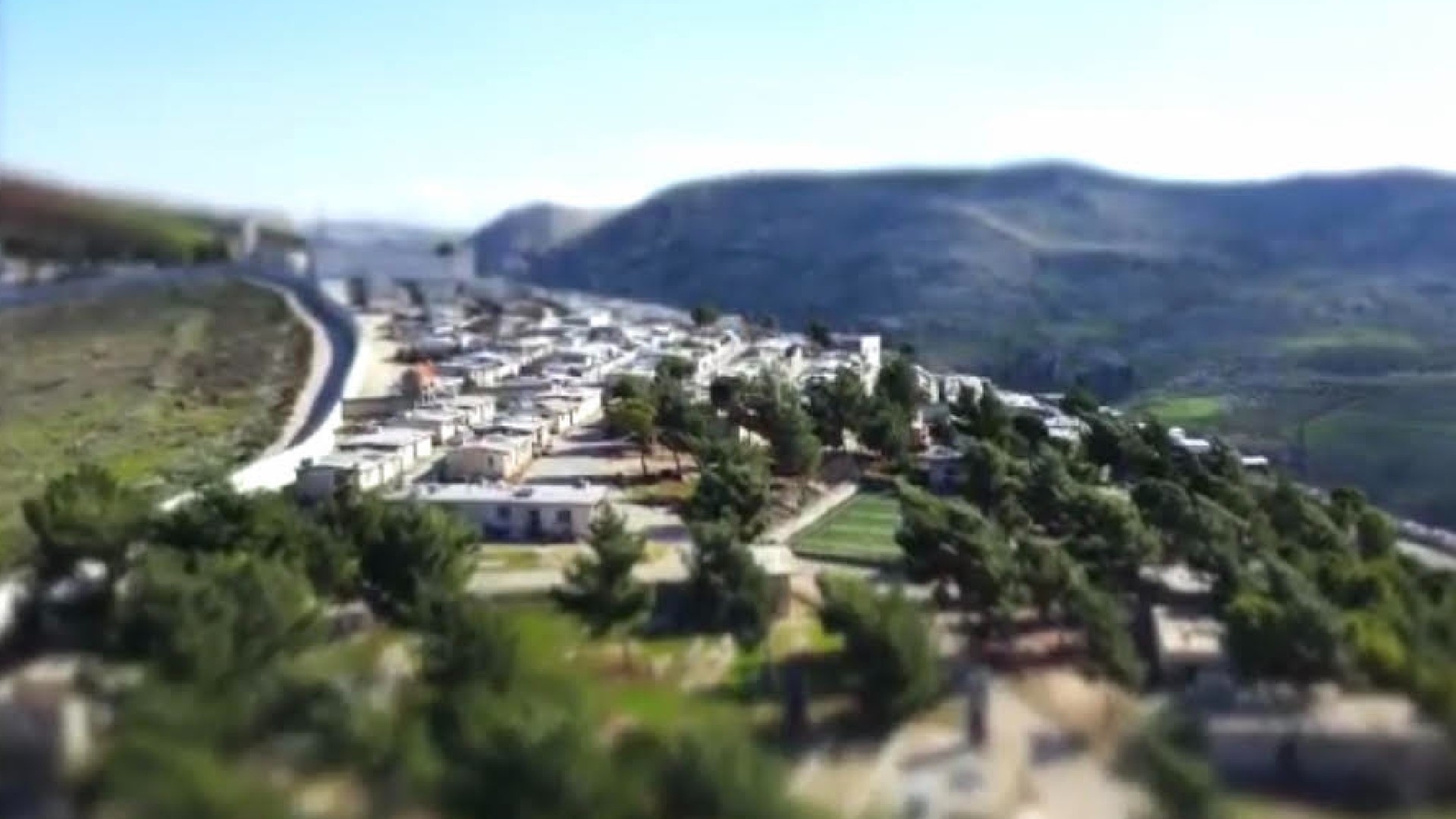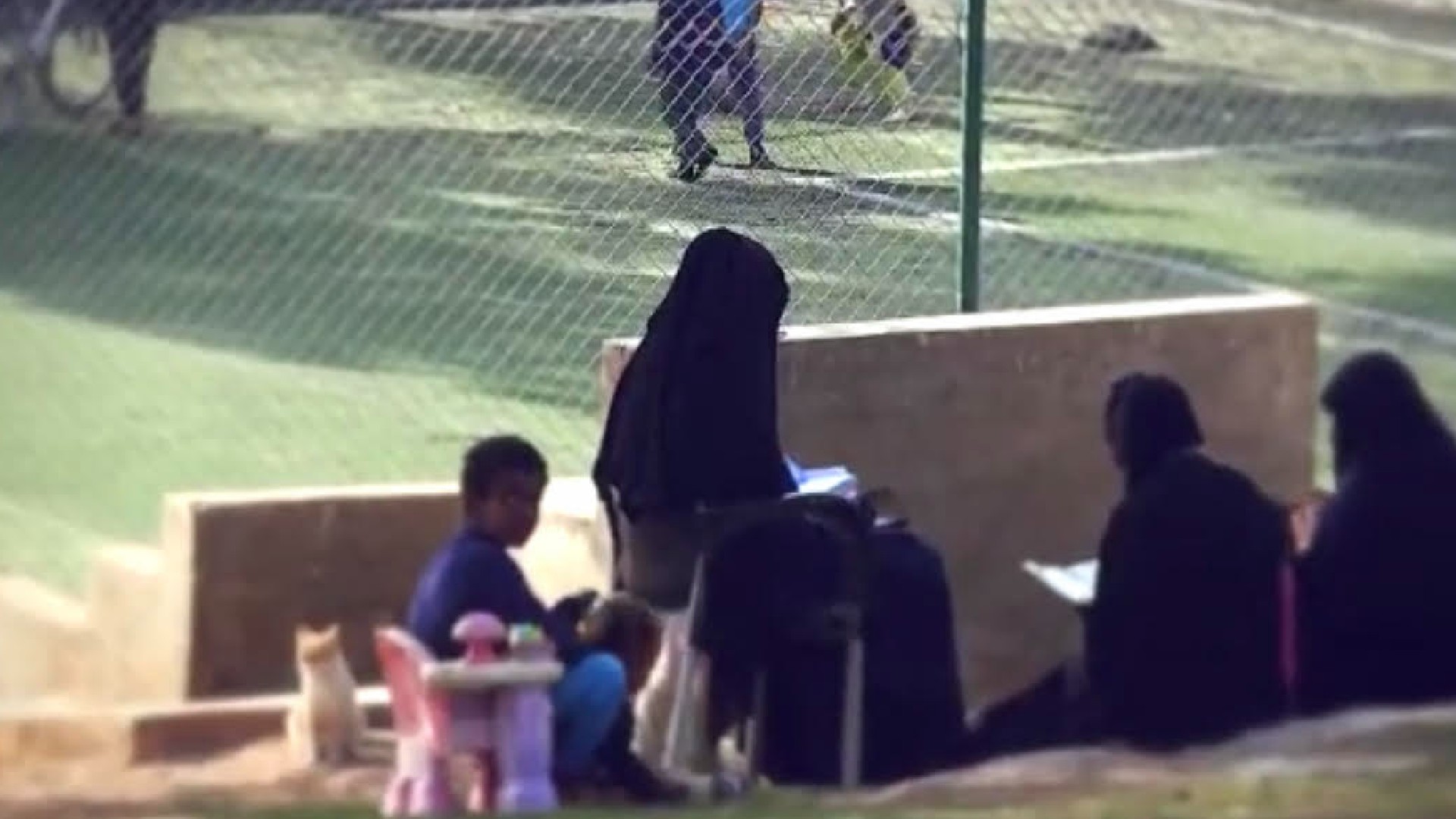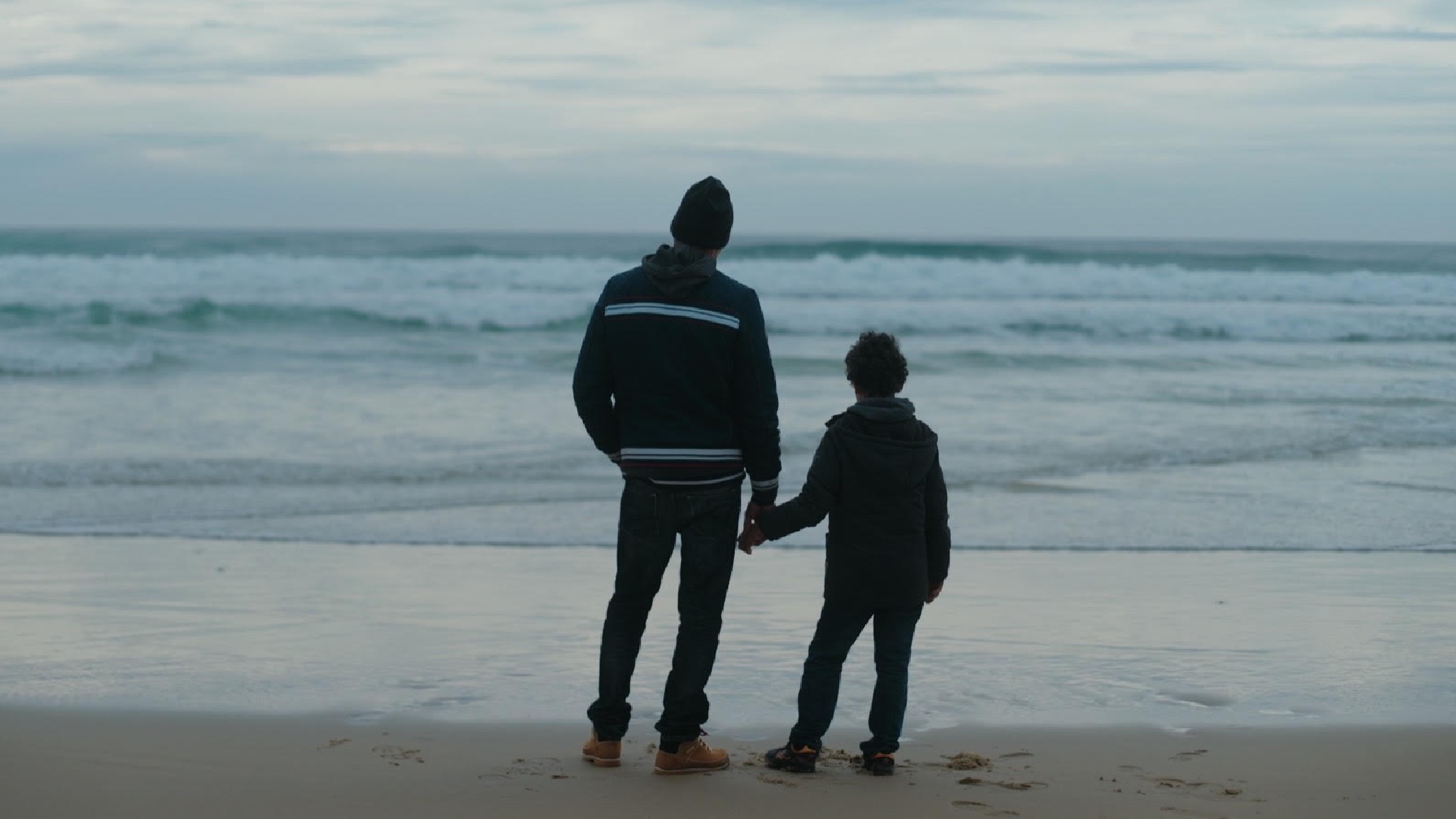Syria: Inside the camp in Idlib harbouring wanted French fighters

In late April, Ben* illegally crossed the border from Syria to Turkey.
The Frenchman scaled the three-metre concrete wall that has separated the two countries since 2015. In his arms was Sarah, his three-year-old daughter, born in Idlib province.
Sarah's mother, who is also French, explained in a propaganda video that she had chosen to remain in Syria among a combat group close to al-Qaeda.
After more than nine years with the same group, Ben, 26, had decided to give himself up.
"He can't wait to get back to France," his mother, who did not wish to give a name, told Middle East Eye after his escape. "I've been waiting almost 10 years for this miracle."
Stay informed with MEE's newsletters
Sign up to get the latest alerts, insights and analysis, starting with Turkey Unpacked
A few days after scaling the wall, Ben went to the French embassy in Istanbul with his child. He was handed over to the Turkish authorities, who eventually deported him to Paris, where he has been indicted for having joined a terrorist group. He faces up to 30 years in prison.
"When Ben left, he was still a child," Ben's lawyer in France, Florian Lastelle, told MEE. "Over time, he became a responsible father and realised that he could not raise his child in that area."
"He is aware that he will remain in prison for several years, but the main thing for him is that his daughter is in France. She goes to school, she will flourish in her country."
Ben left France in December 2013, a few days before Christmas. He had just converted to Islam, and was just 16.
Several friends left with him, all minors, all from the same district of Nice and all indoctrinated by one man: Omar Diaby, alias Omar Omsen.
The French-Senegalese, wanted by France through an international arrest warrant, is considered by French intelligence services to be the biggest recruiter of French people to fight in Syria.
In 2013, Omsen moved to Idlib and led a group of French people fighting alongside al-Nusra Front, which was then al-Qaeda's Syrian affiliate.
Over the years, he turned his small unit into an independent private community of French fighters, living in a walled-off camp atop a hill near the border with Turkey.
A local source told MEE that 80 adults live at the camp, 60 of them French, according to CAT, the Center for the Analysis of Terrorism, based in Paris.
And with them live nearly a hundred children.
Omsen applies his version of so-called Islamic laws there. By leaving the group, Ben incurred the wrath of his former "friends", who are now accusing him of kidnapping his daughter, Sarah.
"This child does not belong to France, she is Syrian," explained a spokesperson for the group in a message sent to MEE.
"We don't want our children to grow up in France. This little girl has no business being in a home with French people.”
A French 'brigade' in Syria
Omsen's group calls itself Firqat al Ghouraba, meaning Foreigners' Brigade.
When the first fighters settled in Syria near Samarda in 2013, they lived in makeshift tents on a hilltop a few metres from the Turkish border, in Harem town.
Today, their camp looks like a private complex, as seen by MEE. They have built houses, a prayer room, a school and even a football pitch with a green artificial turf. All framed by a high green fence.
"Our perimeter wall has held up well, despite the lack of foundations," boasts one of the group's members in an interview with MEE after the violent earthquake that struck northwest Syria and Turkey last February.
Firqat al Ghouraba is not trying to hide; its members are perfectly visible from the busy road that runs around the camp.
When questioned by MEE on several occasions about how the camp is financed, members of the group refused to respond.
Locally, these French-speaking fighters are increasingly finding themselves at odds with Hay'at Tahrir al-Sham (HTS), an armed group formerly comprising al-Nusra Front.
HTS controls much of Idlib, and in recent years has been attempting to rein in smaller armed groups in the province under its authority.
In August 2021, it arrested Omsen and imprisoned him for a year and a half, before releasing him with firm instructions not to apply his own Islamic laws.
Earlier this year, several videos broadcast by Omsen's group directly attacked HTS, whom they accuse of having abandoned the "jihad".
According to a local source close to HTS, further investigations are still under way against Omsen and some of his supporters, in a sign that tensions between the two groups are not going away.
'My children have been stolen from me'
- Father of minors residing in the Firqat al Ghouraba camp
Firqat al Ghouraba is also of concern to French authorities.
In an interview with Le Figaro in March 2021, Laurent Nunez, then coordinator of the national fight against terrorism, said that Paris was monitoring "these French people very closely, to prevent planned attacks".
According to CAT chairman Jean-Charles Brisard, Omsen's group is dangerous on several levels.
"Firstly, because of its propaganda, which continues to be disseminated through various channels, on social networks and encrypted messaging services, openly advocating the hijra [migration],” he told MEE.
“Secondly, this propaganda feeds an ongoing recruitment and enlistment drive. The last two Frenchmen to go to Syria in 2021 joined Omsen's group."
In January 2015, Omsen hailed the attack on Charlie Hebdo and the murder of eight journalists from the satirical newspaper.
"If I could, I would have plucked Charb's [the cartoonist's] eyes out with a spoon," the Franco-Senegalese said.
Children cut off from the world
In addition to the 80 adults, nearly a hundred children are growing up behind the fences of the camp, local sources have told MEE.
In several propaganda videos, the children are seen playing, surrounded by men armed with Kalashnikov rifles.
It's a real closed-door world, where girls are married from as young as 16 and polygamy is widespread.
But most women in the camp have joined of their own accord, such as the ex-wife of Karim*, who is a French citizen.
In September 2017 she managed to avoid detection by Turkish authorities and enter Syria with two of her children with Karim, without telling him.
Since then, he has been fighting to get them back.
"I haven't heard from them since August 2021," Karim told MEE.
When he contacts French authorities, they always respond with “we have no official representation in Syria,” he said.
He has now turned to local authorities in Idlib, the HTS-backed Syrian Salvation Government, his last remaining hope.
"I filed a complaint with the Idlib justice system because these judges have jurisdiction in the region," he explained.
"I don't know if this complaint will ever succeed. My children have been stolen from me and Omsen's group has done everything to deprive me of my rights as a father. I've been fighting for six years.”
*Names changed to protect the identity of the interviewees
This article is available in French on Middle East Eye French edition
Middle East Eye delivers independent and unrivalled coverage and analysis of the Middle East, North Africa and beyond. To learn more about republishing this content and the associated fees, please fill out this form. More about MEE can be found here.







